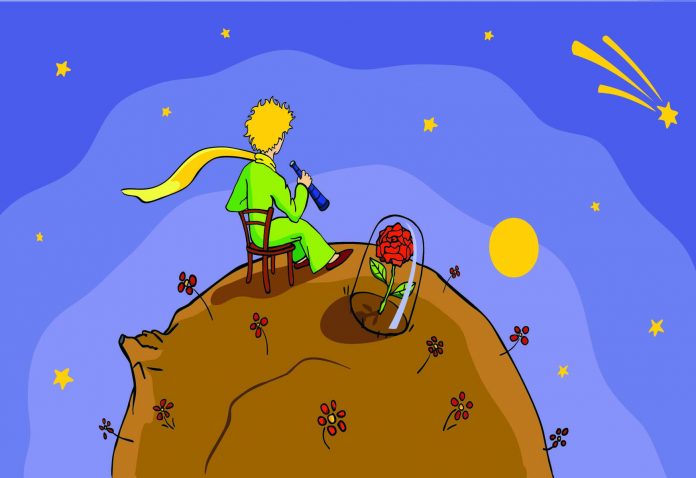Our readings today are about the quest for wisdom, and what it takes to find it.
Nowadays, we are so flooded with information, especially in the social media. We used to rely only on the usual print and broadcast media before, in order to get information. Now the sources of information have been multiplied exponentially by digital technology. Anyone can post anything in the social media and make it go viral. And when it goes viral, it catches the attention of people and it can become news, even if it is not true. Information always goes with a lot of disinformation.
People now find it difficult to distinguish between information, misinformation, and disinformation. And this is bound to happen if they do not even bother to ask questions anymore, like, IS THIS REALLY TRUE? It takes more than information to know the truth.
It is not enough to know what people are saying or talking about. If we want to arrive at the truth, we need to grow in WISDOM. But then of course, the problem is, wisdom can develop only if we have the patience and the time to settle down, to really pay attention and listen, and to reflect on the information that we are getting, so that we are able to sort them out.
In our Gospel today, Mark tells us Jesus was explaining to his disciples what his mission was about, as they journeyed through Galilee. He says they did not understand him but none of them asked a question or sought any clarification about what he meant. In fact, Jesus even went out of his way to ask them if anything was the matter because he had observed them arguing with one another about something. But they kept quiet.
This scene reminds me of many similar instances in the past when I was still teaching in the seminary or in schools of theology. At the end of a lecture I would usually ask the students if everything was clear and if they had any questions, and there would be no questions. It is then that I’d usually say, “Ok, you don’t have questions. Then maybe I should ask you some questions. How did you understand what I just explained now?”
When you cannot get anyone to explain or summarize coherently what you just discussed for almost one hour, you realize that nobody understood. You almost want to bang your head on the table and say to yourself, “I am a failure.” I wonder if Jesus did not feel this way in our Gospel today.
They say there are two things that usually prevent us from understanding things: one, the fear of asking questions, and two, the failure to pay attention.
About the first, I remember my late father telling me when I started going to school, “Ambo, remember this. When you don’t understand what your teacher is saying, don’t be afraid to ask a question or seek a clarification, OK? It’s OK to admit that you did not understand. It is better than pretending to understand when you actually don’t.
One of the biggest blocks to understanding is the hesitancy to ask questions because of the fear of embarrassment. And this fear is reinforced when the teacher has the tendency to feel threatened by questions or to ridicule the student who asks questions or when the other students laugh. Understanding requires a lot of honesty and humility to admit one’s ignorance.
The second and most common reason why we are unable to understand is the failure to pay attention. Mark tells us in the Gospel that the disciples were preoccupied with something else as Jesus struggled to explain things to them. All that they picked up from what he had said was that he was going to die. And their immediate reaction was, “Who will take over if that happens to him? Who will be the successor?” And that got them busy arguing as to who of them was most deserving of the position.

This, I think, is the bigger obstacle to understanding. It is actually worse than hesitancy or fear. And this applies, particularly to all of us in this age of digital technology. There are too many things that distract our attention. We often do not even have time anymore to pay close attention, to focus, to listen carefully, to concentrate, to try to understand. Our minds can also be blocked by biases, prejudices, and unquestioned presuppositions, such that we are prevented from understanding.
I find it interesting what Jesus did when he realized where his disciples were or what they were preoccupied with and why they could not get what he was trying to explain to them. Mark says, he interrupted the journey and SAT DOWN, and called his disciples to sit with him. Then, he took a child, placed the child in their midst.
The scene reminds me of that part in the famous book by Antoine de Saint Exupery, The Little Prince, where the Little Prince says, “The problem with grownups is they often convince themselves that they are preoccupied with ‘matters of consequence.’” When people no longer have time to sit down and watch the sunset, or pay attention to a rose, or befriend a fox, they begin to go around like headless chickens in business suits.
Perhaps this is one of the positive effects of this pandemic on us; it has given us more time to sit down and reflect.
It takes a lot of childlikeness, to be able to grow in wisdom. To understand the world better, we need to retain our curiosity and inquisitiveness about the world, dare to ask questions, and to pay close attention. We need time to go into solitude in order to reflect and pray about the things that are happening around us. We need that spiritual disposition of holy innocence to be able to allow God to guide us or lead us by the hand like a little child.
Homily of Bishop Pablo Virgilio David of Kalookan for the 25th Sunday in Ordinary Time, 19 September 2021, Mk 9:30-37









